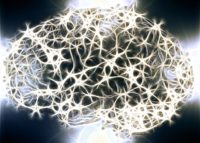
Source Multiple Sclerosis News Today: A new study demonstrates that intracellular sigma peptide (ISP) can promote remyelination in a mouse model of multiple sclerosis (MS).
Importantly, this study was independent of NervGen, a pharmaceutical company that is developing an ISP-like compound — NVG-291 — for the treatment of nerve injury and MS.
The study, “Modulating proteoglycan receptor PTPσ using intracellular sigma peptide improves remyelination and functional recovery in mice with demyelinated optic chiasm,” was published in the journal Molecular and Cellular Neuroscience.
ISP is an inhibitor of the protein tyrosine phosphatase sigma (PTPσ), which slows the healing process when there is inflammation in the central nervous system. By blocking this healing-preventing receptor, ISP can promote nervous system healing and remyelination — the repair of myelin, the nerve cell “sheath” that becomes damaged in MS. Read on.













